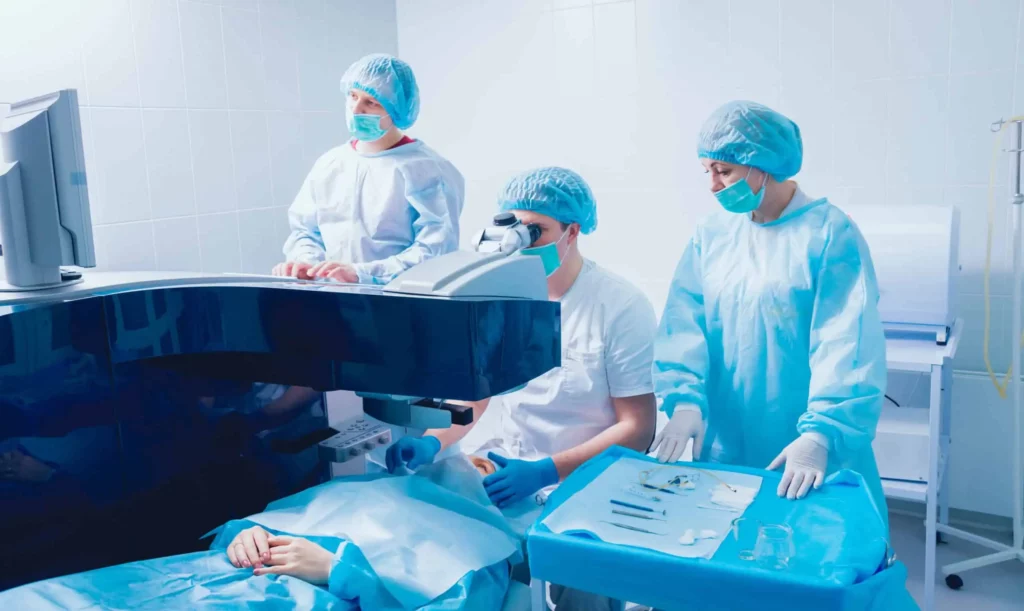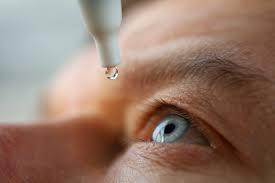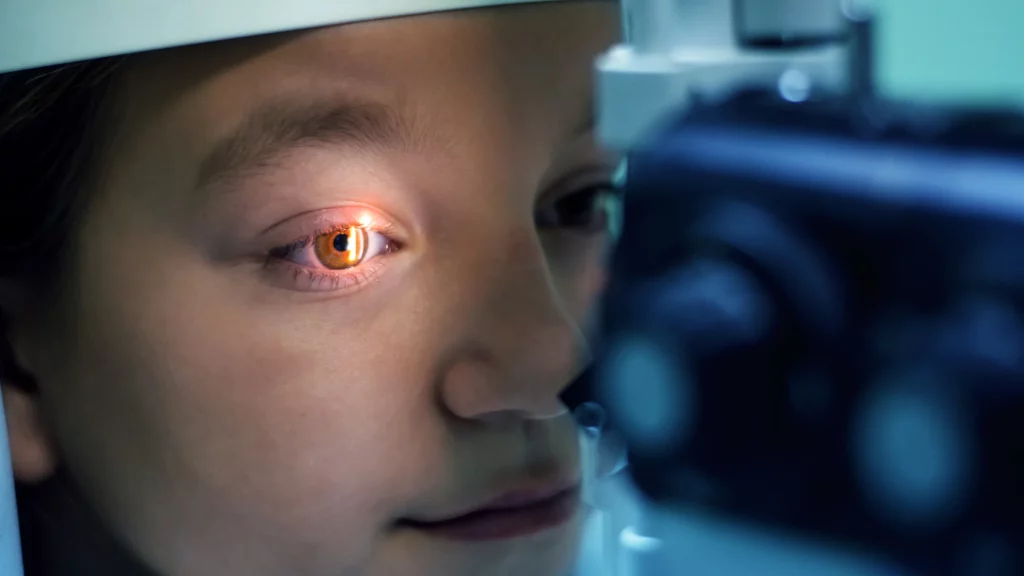Are you struggling with fuzzy vision after your LASIK surgery and wondering what’s going on? Don’t worry; you’re not the only one facing this issue. In this article, we’re going to explore the reasons behind blurred vision after LASIK and provide you with tips on how to prevent it from happening. So, get ready to gain some clarity on this topic, and let’s jump right in!
Contents
What Is LASIK Surgery?

To fully understand the situation, let’s quickly run through what LASIK surgery is all about.
The procedure – LASIK, which stands for Laser-Assisted in Situ Keratomileusis, is a type of refractive eye surgery that corrects common vision problems like nearsightedness, farsightedness, and astigmatism. The procedure involves reshaping the cornea using a laser to help your eye focus light better and improve your vision. The surgeon creates a thin flap on the cornea, lifts it, and then uses an excimer laser to remove a precise amount of corneal tissue to reshape the cornea.
Benefits of LASIK – The main attraction of LASIK is that it can help reduce or eliminate the need for glasses or contact lenses. People who undergo LASIK often enjoy improved vision and a better quality of life. Additionally, the procedure is quick, relatively painless, and the recovery time is usually fast. But sometimes, things don’t go as smoothly as planned.
Top Causes of Blurred Vision After LASIK

Here are a few possible reasons why you might be experiencing blurred vision after your LASIK surgery:
Dry Eyes
It’s common for people to experience dry eyes after LASIK. The surgery can temporarily reduce tear production, causing a lack of lubrication on the eye’s surface. When your eyes are dry, they can’t focus as well, resulting in blurry vision. Most people experience temporary dry eye symptoms, but they typically improve within a few weeks to a few months.
Epithelial Ingrowth
This occurs when cells from the outer layer of the cornea (the epithelium) grow underneath the flap created during the surgery. This can cause blurred vision, discomfort, and other visual symptoms. While this is a rare complication, it may require additional treatment to resolve the issue.
Corneal Haze
A hazy or cloudy appearance on the cornea can cause your vision to be less clear. This is usually a temporary side effect that improves over time. However, in some cases, corneal haze can persist and may require further treatment, such as the use of steroid eye drops or additional laser procedures to improve vision clarity.
Presbyopia
Presbyopia is an age-related condition that affects near vision. It occurs when the lens of the eye loses flexibility, making it difficult to focus on close objects. LASIK corrects distance vision, but it does not prevent presbyopia from developing in patients over 40.
Inaccurate Preoperative Measurements
Inaccurate preoperative measurements can lead to suboptimal LASIK outcomes, including blurred vision. Factors like corneal thickness, pupil size, and tear film quality can influence the success of the surgery.
Regression
Regression occurs when the eye gradually reverts to its pre-LASIK refractive error, causing a decline in visual acuity. This can happen due to healing response variations or changes in the cornea.
Flap Complications
Flap complications can arise when the corneal flap created during LASIK does not heal properly or becomes dislodged. This can result in blurred vision and other visual disturbances.
How Long After LASIK Will Blurry Vision Go Away?
 Undergoing LASIK surgery can be life-changing for those seeking freedom from glasses or contact lenses. While the procedure is generally quick and offers a fast recovery, it’s not uncommon for patients to experience blurry vision in the immediate aftermath. If you’re wondering how long it will take for blurry vision to go away after LASIK, you’re not alone. Let’s delve into the timeline of vision improvement and the factors that may influence it.
Undergoing LASIK surgery can be life-changing for those seeking freedom from glasses or contact lenses. While the procedure is generally quick and offers a fast recovery, it’s not uncommon for patients to experience blurry vision in the immediate aftermath. If you’re wondering how long it will take for blurry vision to go away after LASIK, you’re not alone. Let’s delve into the timeline of vision improvement and the factors that may influence it.
The recovery process following LASIK surgery varies from person to person, but here’s a general timeline to give you an idea of what to expect:
- 24 to 48 hours after surgery – It’s normal to experience blurry vision immediately after LASIK surgery as your eyes start to heal. You might also experience mild discomfort, tearing, or sensitivity to light during this initial phase. Most patients notice a significant improvement in their vision within the first 24 to 48 hours.
- 1 week after surgery – While your vision may still fluctuate, it should continue to improve day by day. Within the first week, many patients achieve close to their optimal vision. However, some may still experience mild blurriness or fluctuating vision, especially in low-light conditions.
- 1 to 3 months after surgery – During this period, your eyes continue to adjust and heal. Any lingering blurry vision should gradually diminish, and your vision should stabilize. It’s important to note that some patients might still experience minor fluctuations in their vision during this period.
Tips to Safeguard Your Vision After LASIK Surgery
| Do’s | Don’ts |
|---|---|
| Wear eye guards | Rub your eyes excessively |
| Wear eye guards to protect the eye area, such as goggles or shields that attach to glasses. You can buy them online or ask your doctor for recommendations. | Avoid rubbing your eyes, as this can cause irritation or damage during the healing process. Wearing eye guards at night can help protect your eyes from inadvertent rubbing during sleep. |
| Rest often during recovery | Exercise immediately after surgery |
| Give your eyes plenty of rest during the recovery process. If you need to work, take frequent breaks, especially when using a computer screen. Relaxation can speed up the recovery process. | Refrain from exercising for at least 2-3 days after surgery. When you do start exercising, ease into it. If swimming is your main form of exercise, wear goggles and avoid submerging your head completely underwater. |
| Wear sunglasses and use eyedrops | Engage in activities that may harm your eyes |
| Wear sunglasses outdoors and goggles in the pool to protect your sensitive eyes during the healing process. Use eye drops if your eyes feel dry. | Avoid wearing eye makeup, participating in contact sports, rinsing your eyes with soap and water, or engaging in any activities that may cause harm to your eyes during the recovery period. |
Ways To Prevent Blurred Vision After LASIK
Now that we know the causes, let’s discuss some ways to prevent blurred vision after LASIK surgery:

- Choose an experienced surgeon – The skill and experience of your surgeon play a significant role in the success of your LASIK procedure. An experienced surgeon will be better equipped to handle any complications that might arise and ensure the best possible outcome for your vision.
- Proper preoperative evaluation – Before undergoing LASIK surgery, it’s essential to have a comprehensive eye examination to determine if you’re a suitable candidate for the procedure. This includes measuring your corneal thickness, assessing the shape of your cornea, and checking for any pre-existing eye conditions that could affect the surgery’s outcome.
- Postoperative care – Following your surgeon’s postoperative instructions is crucial for a successful recovery. This may include using prescribed eye drops, avoiding rubbing your eyes, and protecting your eyes from bright light or dust. Proper postoperative care can help minimize the risk of complications and promote optimal healing.
- Artificial tears and eye lubricants – Since dry eyes are a common cause of blurred vision after LASIK, using artificial tears or eye lubricants can help keep your eyes moisturized and reduce the risk of blurry vision. Talk to your surgeon about which eye drops are best for you and how often you should use them.
- Follow-up appointments – Attending follow-up appointments with your surgeon is essential to monitor your progress and address any issues that may arise. If you’re experiencing blurred vision, your surgeon can evaluate your eyes and recommend appropriate treatment if needed.
Conclusion
Blurred vision after LASIK surgery can be a cause for concern, but understanding the possible reasons behind it and taking proactive steps can help prevent or address the issue. By choosing an experienced surgeon, undergoing a thorough preoperative evaluation, and following proper postoperative care, you can significantly reduce the risk of complications and increase your chances of enjoying clear, crisp vision after your LASIK procedure.
Don’t let blurry vision hold you back from experiencing the life-changing benefits of LASIK surgery. EyeMantra offers the most advanced LASIK options, including PRK, Femto Lasik, SMILE surgery, Standard Lasik, ICL, and Contoura vision. If you have any questions about Lasik surgery in Delhi, Lasik surgery cost, and the Lasik procedure itself, don’t hesitate to reach out to us. Call us at 9711116605 or email at [email protected] to discuss your options and take the first step towards a better vision.



mexican drugstore online
http://cmqpharma.com/# mexican mail order pharmacies
mexican border pharmacies shipping to usa
mexican drugstore online: cmq pharma – mexican pharmaceuticals online
Hmm it seems like your blogg ate my firrst comment (it was super
long) so I guees I’ll just sum it up what I submitted and say, I’m
thoroughly enjoying your blog. I as well am an aspiring
blog writer but I’m still new to the whole thing. Do you
have any suggestions for newbie blog writers?
I’d certainly appreciate it. https://www.Waste-Ndc.pro/community/profile/tressa79906983/
best online pharmacy india [url=https://indiapharmast.com/#]pharmacy website india[/url] buy prescription drugs from india
Online medicine home delivery: п»їlegitimate online pharmacies india – online pharmacy india
http://canadapharmast.com/# canada ed drugs
reputable indian online pharmacy: india online pharmacy – cheapest online pharmacy india
safe canadian pharmacies: canadian pharmacy india – canadian pharmacy meds review
mexico drug stores pharmacies: mexican online pharmacies prescription drugs – mexico drug stores pharmacies
https://indiapharmast.com/# reputable indian pharmacies
world pharmacy india: online shopping pharmacy india – buy prescription drugs from india
purple pharmacy mexico price list: medicine in mexico pharmacies – pharmacies in mexico that ship to usa
canada pharmacy 24h [url=https://canadapharmast.com/#]reddit canadian pharmacy[/url] canadian drug stores
http://canadapharmast.com/# online canadian pharmacy reviews
п»їlegitimate online pharmacies india: top 10 pharmacies in india – india pharmacy mail order
indianpharmacy com: indianpharmacy com – Online medicine home delivery
https://doxycyclinedelivery.pro/# doxycycline prices
https://clomiddelivery.pro/# cost of generic clomid without insurance
where to buy amoxicillin 500mg without prescription [url=https://amoxildelivery.pro/#]amoxicillin canada price[/url] amoxicillin 500 mg brand name
amoxicillin 500mg buy online uk: antibiotic amoxicillin – buy amoxicillin from canada
https://doxycyclinedelivery.pro/# doxycycline 150 mg
http://paxloviddelivery.pro/# paxlovid generic
п»їpaxlovid [url=https://paxloviddelivery.pro/#]paxlovid india[/url] paxlovid pharmacy
paxlovid for sale: paxlovid generic – paxlovid generic
https://doxycyclinedelivery.pro/# doxycycline 75 mg coupon
https://amoxildelivery.pro/# can you buy amoxicillin over the counter canada
paxlovid for sale [url=http://paxloviddelivery.pro/#]Paxlovid over the counter[/url] buy paxlovid online
http://amoxildelivery.pro/# amoxicillin 875 125 mg tab
doxycycline 100mg cap price: no prescription doxycycline – doxycycline cheapest uk
http://ciprodelivery.pro/# buy ciprofloxacin over the counter
amoxicillin medicine [url=http://amoxildelivery.pro/#]where can you get amoxicillin[/url] amoxicillin 500mg capsule
http://ciprodelivery.pro/# cipro for sale
https://ciprodelivery.pro/# antibiotics cipro
paxlovid india [url=http://paxloviddelivery.pro/#]paxlovid generic[/url] Paxlovid over the counter
http://ciprodelivery.pro/# cipro online no prescription in the usa
where to buy cheap clomid pill: can i get generic clomid without a prescription – where can i buy clomid without rx
https://paxloviddelivery.pro/# п»їpaxlovid
https://amoxildelivery.pro/# where can i buy amoxicillin without prec
where buy clomid [url=https://clomiddelivery.pro/#]where buy clomid without a prescription[/url] get clomid tablets
purchase cipro: cipro online no prescription in the usa – buy cipro online
https://paxloviddelivery.pro/# paxlovid price
http://amoxildelivery.pro/# where to buy amoxicillin over the counter
buy doxycycline monohydrate [url=http://doxycyclinedelivery.pro/#]doxycycline 50 mg price uk[/url] generic doxycycline online
https://amoxildelivery.pro/# generic amoxicillin over the counter
buy cipro: ciprofloxacin over the counter – ciprofloxacin generic
buy cipro online without prescription: buy cipro online without prescription – where to buy cipro online